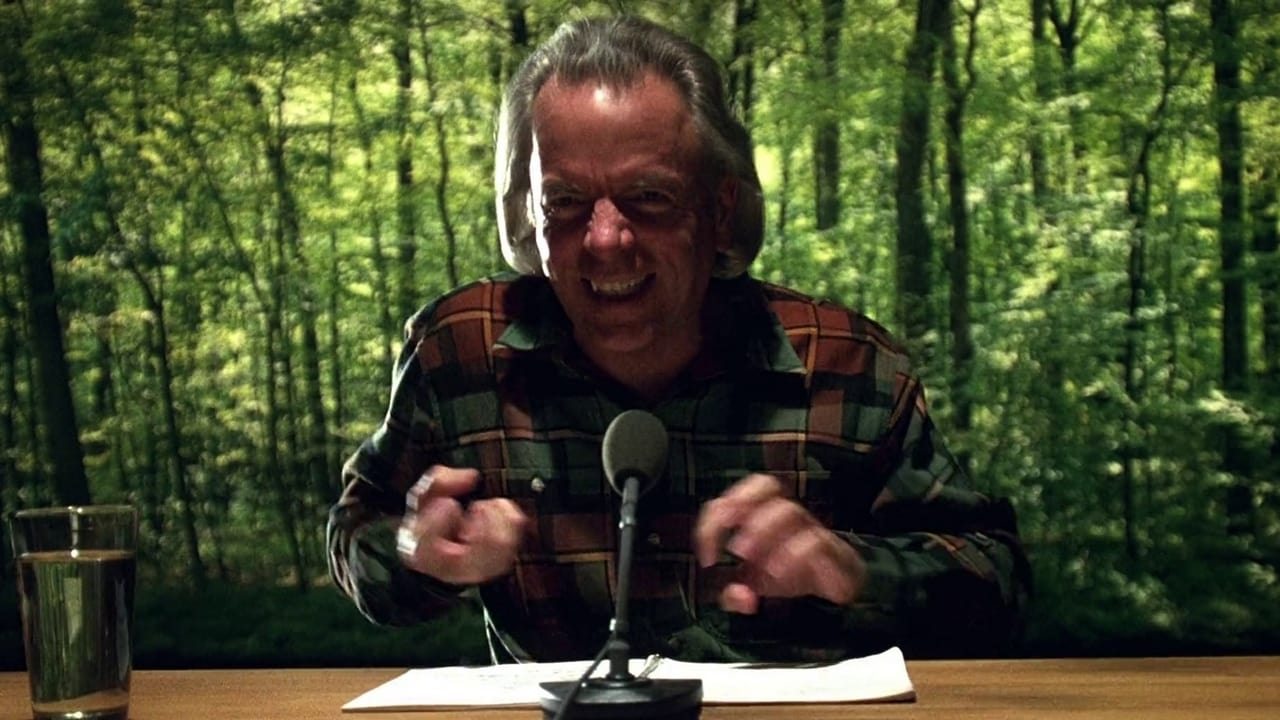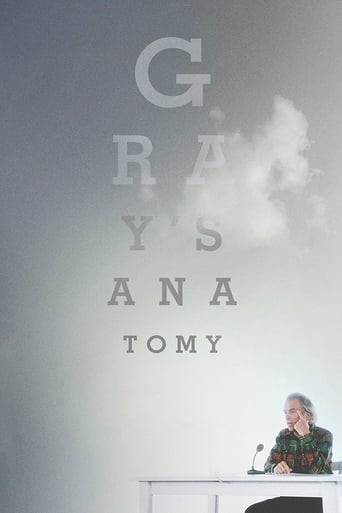BroadcastChic
Excellent, a Must See
Beystiman
It's fun, it's light, [but] it has a hard time when its tries to get heavy.
Celia
A great movie, one of the best of this year. There was a bit of confusion at one point in the plot, but nothing serious.
Billy Ollie
Through painfully honest and emotional moments, the movie becomes irresistibly relatable
MisterWhiplash
I saw this film a couple of times when it aired on cable, and didn't really know who the director was at the time. I recognized Spalding Gray, as I had seen at least one other of his one-man monologue movie/shows that pop up every now and again on TV. His style of telling stories is sardonic, sad, a tinge in the cynical, always pointing out idiosyncrasies when he can, and always with a sense of the truth. When I found out that this particular one, Gray's Anatomy, was directed by Steven Soderbergh, it finally made sense. Because the style of the project fits the rest of the director's oeuvre without a misstep. It might not be one his great films, but he makes material that should, in what would really be the right reason, be on a stage somewhere off-Broadway (not off-off but not on it either) into something much more compelling for the screen. He uses a combination of varied angles, experimental lighting with colored filters, lenses, the lengths messed up, and messes with light and dark. His DP, Elliot Davis, also a very good asset on Out of Sight, makes this a key part of the engrossment (or what might be for others a distance) in the material. And of course the editing makes one pay attention to bits more closely than others, or accentuates some of the points that Gray makes. The music chimes in unconventionally as well. In this particular case, Gray is talking about health, but more than anything his own as he goes through the process of going to doctors, finding out his illness, getting it cured, et all. But it's not really all that simple, due to some of Gray's own neuroses and other bits of problems that come up, one or two his though mostly on the end of the eccentric doctors and others along his trip. This is not all, however, because through this story of fixing a real medical problem, it off-shoots into bits of topics about New York, Judaism, and his family. Soderbergh understands more than anything the mind-set of a guy like Gray, what he might have had, and the best a director like he can do is keep up with the sparks in the material. It's a good one man-show given better directorial treatment. It flirts with overkill in the style (only so much one man can take even in 80 minutes), but in the end after seeing it more than once I felt comfortable not just with the style but, more importantly, Gray himself. It's like style in a three-legged race to the finish with the substance, as the quirks in each threaten to tumble on another over. And, to be sure, it's under the radar enough in the indie-world to keep its ambitions only so reaching. B+
craigjclark
Made during the time when Steven Soderbergh was in the process of reinventing himself (see also "Schizopolis," made the same year), this is a wonderfully inventive film with a kinetic visual style to match Spalding Gray's verbal gymnastics. This is the kind of film that stays with you long after you've finished watching it, thanks to Gray's performance -- he is a terrific storyteller -- and Soderbergh's imaginative staging.Caveat: If you're at all squeamish when it comes to graphic descriptions of eye injuries, this film may not be your cup of tea.
NJMoon
Like several of Spalding Gray's stage monologues "Gray's Anatomy" has been given the full feature film treatment, this time by "Sex Lies & Video" helmer Steven Soderberg. Gray's discovery of a visual malady leads him to medical and homeopathic treatment and serious consideration of the query "What is it you don't want to see?"This 90 minute monodrama is not opened-up in the traditional sense. Rather it is supplemented by monochrome interviews with Joe and Jane Q. Publics about their particular eye problems. Within the monologue itself, Soderberg employs a variety of lighting and camera trickery to keep the action from stagnating. Mostly, it is a successful endeavor. Though, oddly, the film lacks the overall impact of Gray's "Swimming To Cambodia" or even the lesser (but simpler done) "Monster in a Box". A fine addition to the Gray library.
Snap Dad
This movie is simply a 90 min monologue about this guy and his medical troubles. He explains how he tried all kinds of remedies and potions, because he was too chicken to bite the bullet and get an operation. This movie would seem boring at first glance, but the director - one of my new favourites - Steven Soderbergh makes this an interesting and worthwhile journey into this mans psyche. If you're unsure about this movie, check out Soderbergh's other masterpiece 'Schitzopolis' and then if you have any doubts about his directing ability then that's your loss, not mine. Gray's Anatomy... taste's like chicken. I'm told.

